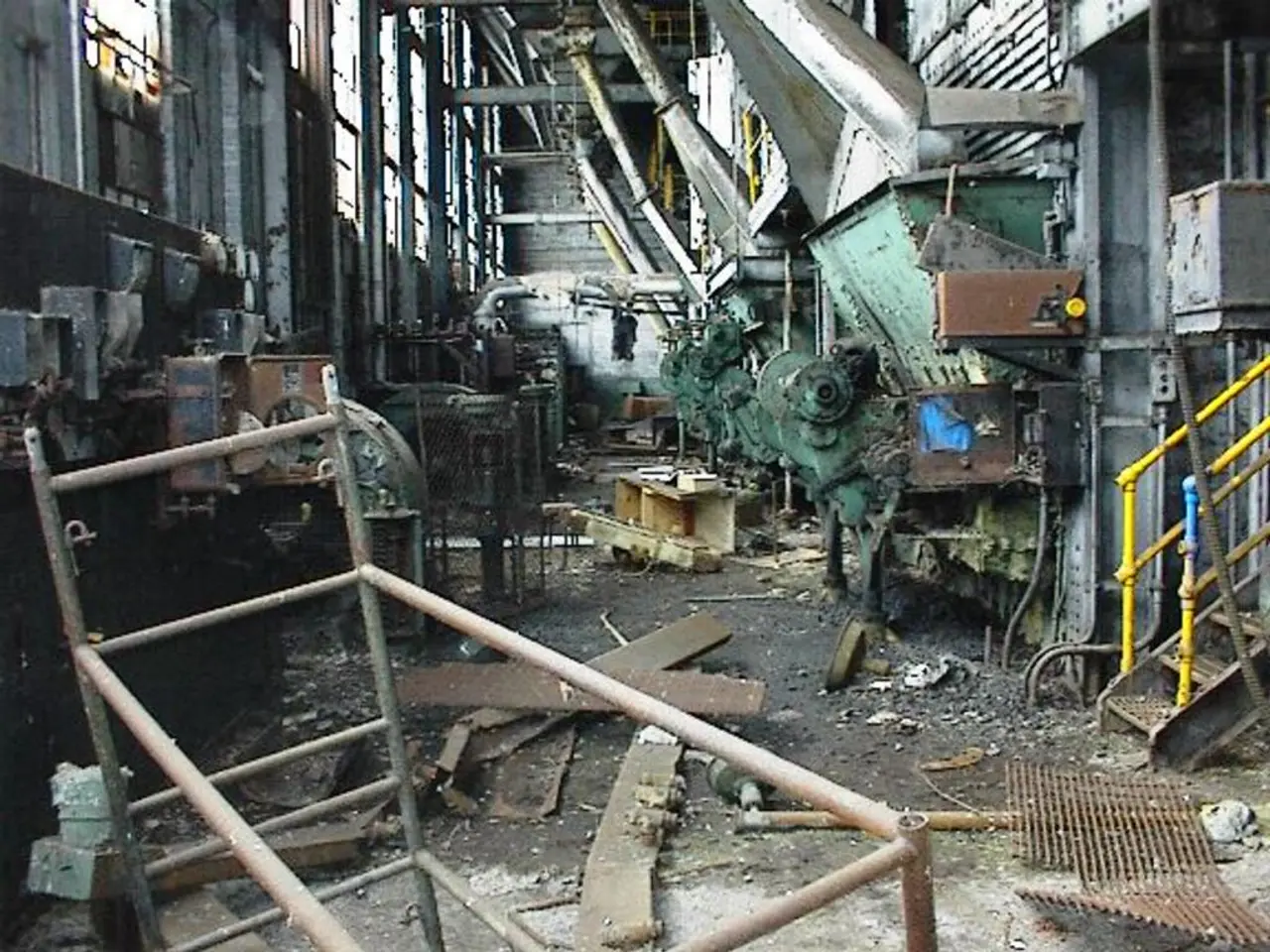Increased Energy Costs and Business Regulation Burden Impact German Industry Competitiveness
German industry is grappling with significant structural disadvantages in international competition, according to a survey by the Munich-based Ifo Institute. The challenges, primarily stemming from high energy prices, burdensome regulation, and unfavorable investment conditions, have resulted in a cost disadvantage of about 15% compared to competitors in the US.
The machinery and electrical industries, as well as the automotive sector, are feeling the pressure of increased competition both internationally and within the European Union. In July 2025, one in four German industrial companies reported a decline in their competitiveness compared to countries outside the EU, while 21% saw increased competitive pressure within the EU.
The machinery industry is particularly hard hit, with the proportion of companies reporting declining competitiveness rising from 22.2 to 31.9 percent. In contrast, the automotive industry has seen a slight improvement, with significantly fewer companies assessing their position more negatively than in the previous month, with the proportion halving from 33.0 to 16.1 percent. However, no industrial sector has seen an improvement in competitiveness recently.
The trade dispute between Germany and the US has resulted in a disadvantage for German industry, but the impact on its ability to compete globally is uncertain and requires further observation. The preliminary agreement in the trade dispute is affecting the competitiveness of German companies, but no specific mention of improvement in any industrial sector has been made.
The Ifo Institute highlights that German industry is challenged by a 15% higher cost burden due to energy costs, regulatory complexity, and difficult investment environments, all of which undermine competitiveness in global markets. Complex and extensive regulatory requirements, including permitting procedures and environmental rules, add to administrative burdens and delays, hampering investment and operational flexibility. Investment is constrained by bureaucratic hurdles, a lack of suitable and attractive infrastructure projects, and insufficient risk-return profiles compared to markets like the UK, limiting growth and modernization opportunities in German industry.
Although inflation pressures remain and skilled labor shortages have slightly eased due to economic slowdown, these structural disadvantages continue to hamper German industrial companies’ global position. Klaus Wohlrabe, head of Ifo surveys, stated that German industry faces immense challenges in international competition. The trade dispute has not been compensated by new trade relations yet, and there's no sign of a turnaround in intra-European competition either.
Read also:
- German Obsession with Luxury Vehicles Thriving Amid Traffic Congestion
- Coastal men's disruptions of dolphin gatherings might lead to jail sentences
- California customers overcharged by Walmart face a penalty of $5.6 million due to pricing discrepancies.
- Stripped-down versions of the Model 3 and Model Y electric vehicles will be introduced by Tesla.







